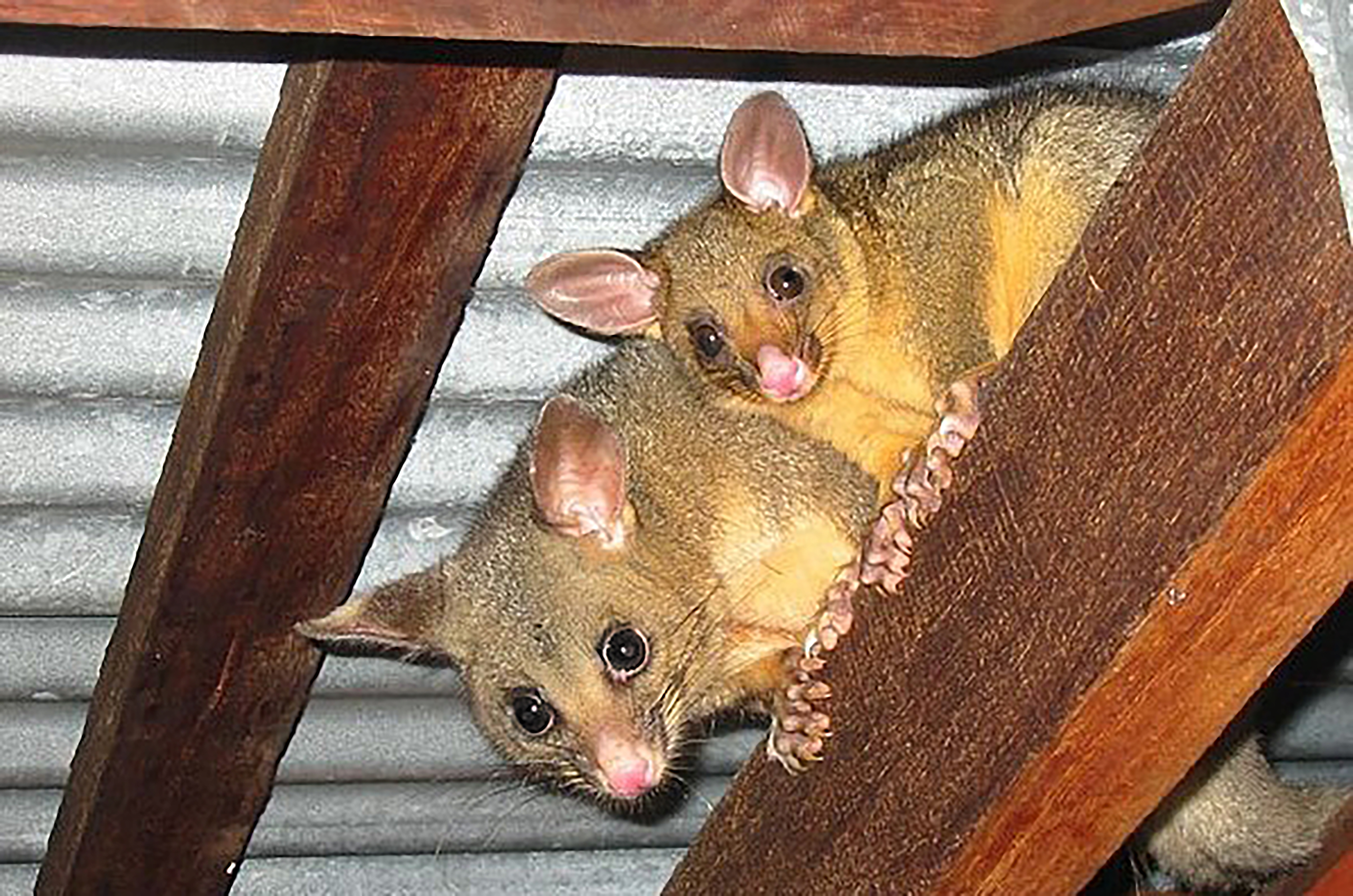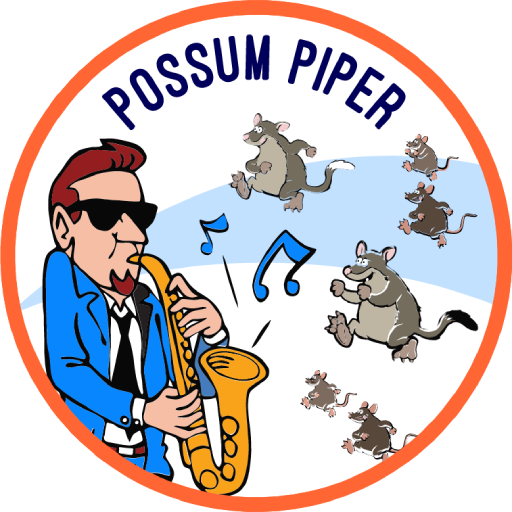
Possum noises waking you up in the middle of the night? Kept company by many strange growling possum noises? Perhaps a high-pitched chattering or maybe an odd clicking sound?
As dusk falls and Australia's native animals awaken, one particular creature - often mistaken for a rat takes the spotlight—an Australian possum.
These territorial creatures' vocalisations are unique and complex; These possum noises offer fascinating insights into their world.
By picking up on their unique calls and other possum noises, we can learn about their behaviours and even spot some telltale signs of infestation.

Table Of Contents:
- Possum Noises: Identifying Different Possum Species Through Their Noises
- How Do I Know if I Have a Possum in My Roof?
- Distinguishing Between Ringtail and Brushtail Possums
- Social Structure and Communication Among Possums
- Possum Noises as Indicators of Infestation
- Possum Noises Frequently Asked Questions
- Conclusion
Possum Noises: Identifying Different Possum Species Through Their Noises
If you've ever wondered about the night-time chatter in your backyard, it could be either a ringtail possum or a brushtail possum making possum noises.
The common ringtail possum and common brushtail possum are Australia's most known species. Their unique possum sounds can help distinguish them.
Related
How Do I Know if I Have a Possum in My Roof?
The possum population comes to life after dark, generating pronounced scratching, thumping, or scampering sounds within attics, ceilings, or roof cavity.
These noises are especially noticeable as they emerge to forage, typically between dusk and 11 pm, or when they return to rest between 3 am and dawn. If you experience consistent nocturnal sounds during these hours, a possum presence is highly likely.
Between 11 pm and 3 am, possum-related noises cease entirely. Any sounds within this timeframe typically suggest signs of rodent activity. These creatures lack a fixed schedule, so expect to hear occasional tapping, scurrying, and faint squeaks during daylight hours, although their peak activity occurs at night
Upset Brushtail possum sounds when we carried out possum-proofing, ruining its beauty sleep!
Distinguishing Between Ringtail and Brushtail Possums
Possum noises are different for each species. The Ringtail possum noise varies from clicks to chatters and hisses; each carrying its own meaning in 'possumeze'.
In comparison, the brushtailed possum noises are quite vocal. They are known for their distinctive growls, screeches, and hisses. A chilling growl in the dead of night might seem menacing but it's often just a warning or territorial display.
Ringtail telling off a broom - Woman gets a fright and swears - Content Warning
Social Structure and Communication Among Possums
Noises between the male possum and female possum are distinctly different when expressing different emotions or intentions. For instance, aggressive noises may indicate potential threats, while soft chatters can be used for intimate interactions.
Hearing aggressive grunts or deep guttural coughing-like sounds? This could be a male asserting dominance or sending off rivals.
Sudden, short hisses might signal fear or annoyance
The higher-pitched calls made by females are often mistaken as more hostile than the lower pitches of males. However, this isn't necessarily true; pitch variations reflect gender differences rather than hostility levels.
Clicks and Chatters – The Language of Possums
Possum Noises in the nocturnal world of these marsupials are more than just clicks and chatters. They're communication tools. Imagine them as words in a richly textured vocabulary.
The clicking sounds you might hear at night serve specific purposes within possum communities. These noises could signal that your local family group has decided to chat about where best to find food or warn each other about potential threats.
On the other hand, their chattering call serves a different purpose altogether. During the breeding season, male possums use it like a serenade, hoping to win over suitable females' hearts with their mating calls.
So next time you hear those characteristic clicks or enchanting chatters after sundown, remember: You've been privy to some secret 'possum talk'.
Possum Noises as Indicators of Infestation
If you're hearing peculiar noises at night, it might not be your imagination running wild. Possums could be the source of those sounds. They are nocturnal marsupials and prefer to stay active during nighttime.
Tree hollows and roof cavities provide ideal shelter for them in daylight hours. If these areas in urban Australia become their resting places, the various distinctive Australian possum noise will likely resonate through your property.
Night-time Noises – Signs of a Possum Invasion
A soft rustling sound can often indicate the presence of possums moving around within confined spaces like tree hollows or roof cavities. But this isn't the only clue they leave behind.
Beyond just movement noise, their possum vocalizations echo into the night - grunts, hisses, possum calls, clicking noises or screeches when they feel threatened can all point towards an unwanted visitor on your property.
Recognising entry points is crucial when considering how to get rid of possums permanently. Other tell-tale signs these clever creatures may be probing your residence &/or roof is nocturnal chatter, along with urine stains and possum faeces under food sources in the garden.

Possum Noises Frequently Asked Questions
What kind of noise does a possum make?
Possums communicate using a variety of sounds, including clicks, chatters, growls and hisses. The type and intensity can vary based on social interactions or perceived threats.
What noise do possums make in Australia?
Australian brushtail and ringtail possums often emit grunts, growls, or screeches. They also use softer noises like clicking and chattering sounds for communication within family groups.
Why do possums make weird noises?
The 'weird' noises are part of the diverse vocal repertoire used by possums to convey different messages, such as warnings to rivals or calls for mates during the breeding season.
Why do possums make a screeching noise?
A loud screeching from a possum is usually an alarm call signalling danger. It could indicate the presence of predators nearby or disputes among fellow creatures.
Conclusion
Possum noises differentiate between species like ringtail and brushtail possums and if you listen long enough you will be able to learn which sound comes from which species.
We've looked into their social structure and discovered how vital vocalizations are in interactions amongst family groups or potential mates during the breeding season.
The clicks, chatters, growls and hisses - they all tell a story if we listen closely enough. And let's not forget those night-time noises that could very well be signs of an unwanted visitor.
How to choose the right expert for advice on what can be done to resolve any possum issues is easy. With many decades of experience Possum Piper can save you time scrolling through endless google searchs when contemplating deterrents vs repellents against longer term solutions such as possum proofing.

More Possum articles you may like:
- Dead Possum Dilemma: Removal and Prevention.
- Gutter Guard & Valley Guard Solutions for Possum Prevention.
- Tree Guard: The Essential Guide.
- Possum Box Installation: A Guide to Suitable Habitats.
- Possum Trap: Essential Do’s and Don’ts for Success.
- Catch and Release Licences: How to Remove Possums Legally.
More Rat articles you may like:
- Rat Bait: Navigating Successful Pest Management.
- How to Get Rid of Rats: Rodent Control Strategies that Work.
- Rat Traps: The Ultimate Guide to Bait Free Rodent Control.



